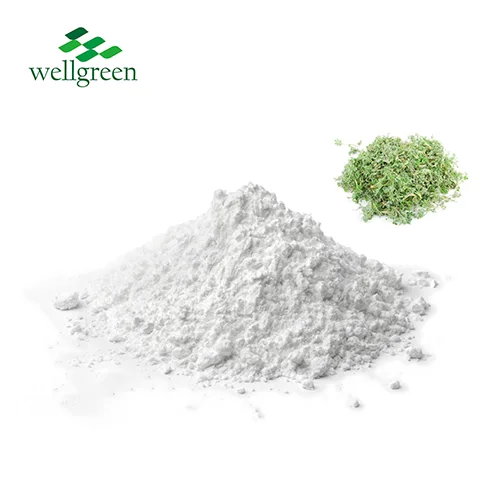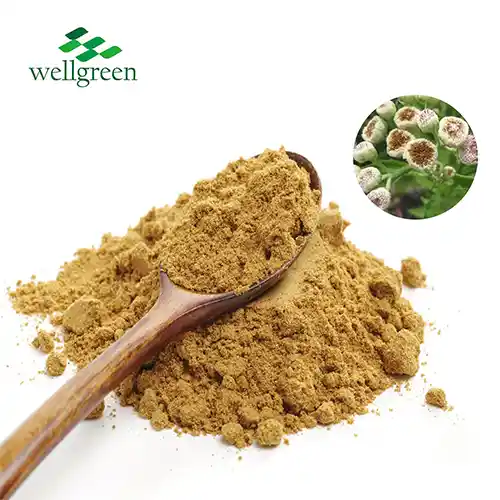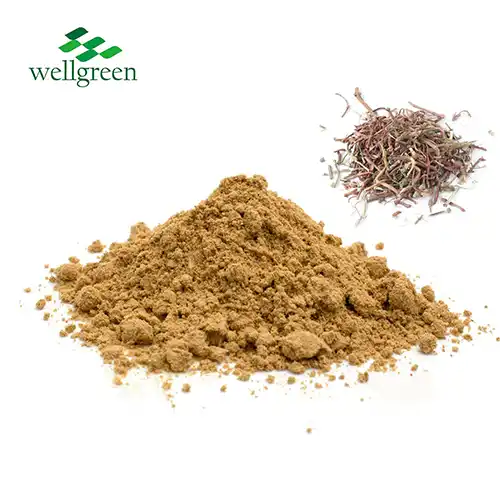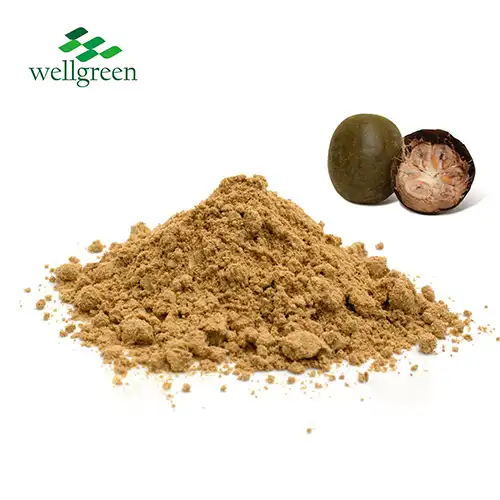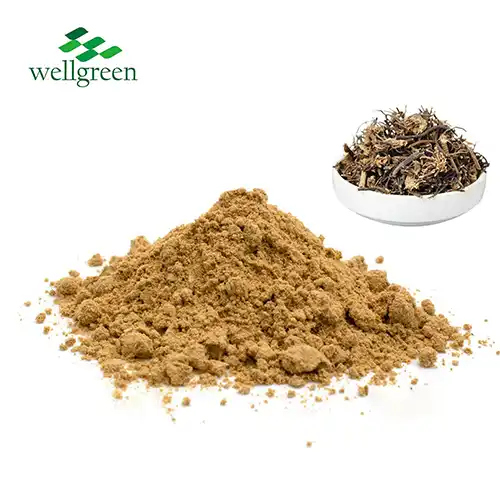How Does Lutein Powder Protect Your Eyes from Blue Light?
2025-10-27 13:36:05
Lutein powder, a powerful carotenoid antioxidant, plays a crucial role in safeguarding our eyes from the harmful effects of blue light. This natural compound accumulates in the macula, forming a protective layer that filters out high-energy blue light waves. By absorbing excess blue light, lutein powder reduces oxidative stress on retinal cells, prevents cellular damage, and maintains optimal visual function. Additionally, lutein enhances contrast sensitivity and glare recovery, making it an essential nutrient for overall eye health in our increasingly digital world. Incorporating organic lutein powder or lutein extract powder into your diet can significantly bolster your eyes' natural defense mechanisms against blue light exposure.
Understanding the Role of the Macular Pigment
The Composition of Macular Pigment
The macular pigment is a specialized layer in the retina composed mainly of lutein, zeaxanthin, and meso-zeaxanthin - three powerful antioxidants that work together to protect the eyes from oxidative stress. Lutein, often sourced from marigold flowers, is the dominant carotenoid in this trio. It helps neutralize free radicals generated by light exposure and supports the overall health of the retinal cells, making it essential for long-term visual protection and performance.
Lutein's Concentration in the Retina
Lutein's influence extends beyond protection - it also contributes to sharper, more comfortable vision. Higher levels of macular pigment have been linked to better contrast sensitivity and faster recovery from glare, which are vital for activities like night driving or working under bright screens. By supporting visual processing and reducing eye strain, lutein enhances both everyday visual performance and long-term eye health.
The Impact of Lutein on Visual Performance
Beyond its protective role, lutein also enhances visual performance. Studies have shown that individuals with higher macular pigment optical density (MPOD) demonstrate improved visual acuity, contrast sensitivity, and glare recovery. These benefits are particularly noticeable in low-light conditions and when dealing with bright light sources, situations where blue light exposure is often heightened.
How Does Lutein Act as a Natural Blue Light Filter?
The Spectrum of Blue Light Absorption
Lutein extract powder is particularly effective at absorbing blue light wavelengths between 400-500 nanometers. This range includes the high-energy visible (HEV) light that is most concerning for eye health. By filtering out these potentially harmful wavelengths, lutein acts as a natural "internal sunglasses" for our eyes, reducing the amount of blue light that reaches the sensitive photoreceptor cells in the retina.
Lutein's Molecular Structure and Light Absorption
The molecular structure of lutein, with its long chain of conjugated double bonds, is key to its light-absorbing properties. This structure allows lutein to effectively capture and dissipate the energy from blue light photons, preventing them from causing damage to retinal cells. The unique arrangement of lutein molecules in the macular pigment optimizes this protective function.
Cumulative Effects of Lutein Supplementation
Regular supplementation with lutein powder can lead to a gradual increase in macular pigment density. This cumulative effect enhances the eye's natural blue light filter over time. Studies have shown that consistent intake of lutein can significantly improve MPOD within a few months, providing progressively better protection against blue light exposure.
Shielding Retinal Cells from Oxidative Stress
Lutein's Antioxidant Properties
Lutein powder is a potent antioxidant, capable of neutralizing harmful free radicals generated by blue light exposure. These free radicals can cause oxidative stress, leading to cellular damage and potentially contributing to age-related eye diseases. By scavenging these reactive molecules, lutein helps maintain the health and integrity of retinal cells, particularly the photoreceptors and retinal pigment epithelium.
Protection Against Photo-oxidative Damage
Blue light can induce photo-oxidative damage in the retina, a process where light energy causes chemical changes that harm cellular structures. Lutein's presence in the macular pigment helps mitigate this damage by absorbing blue light before it reaches the photoreceptor layer. This protective action is crucial in preventing long-term retinal damage associated with chronic blue light exposure from digital devices and artificial lighting.
Cellular Membrane Stabilization
Organic lutein powder not only acts as an antioxidant but also helps stabilize cell membranes in the retina. Lutein incorporates into the lipid bilayers of cellular membranes, enhancing their structural integrity and fluidity. This stabilization makes retinal cells more resilient to oxidative stress and helps maintain proper cellular function, even under conditions of increased blue light exposure.

Conclusion
Lutein powder emerges as a powerful ally in protecting our eyes from the pervasive threat of blue light. Its role in forming the macular pigment, acting as a natural blue light filter, and shielding retinal cells from oxidative stress makes it an indispensable nutrient for maintaining optimal eye health in our digital age. By incorporating lutein-rich foods or high-quality lutein supplements into our daily routine, we can significantly enhance our eyes' natural defense mechanisms against blue light exposure and promote long-term visual health.
Contact Us
Looking for high-quality lutein powder to support your eye health? Contact Xi'an Wellgreen Biological Technology Co., Ltd., a leading manufacturer and supplier of premium organic lutein powder and lutein extract powder. Email us at wgt@allwellcn.com for more information on our products and how we can meet your lutein powder needs.
References
Bernstein, P. S., et al. (2016). Lutein, zeaxanthin, and meso-zeaxanthin: The basic and clinical science underlying carotenoid-based nutritional interventions against ocular disease. Progress in Retinal and Eye Research, 50, 34-66.
Stringham, J. M., et al. (2017). Macular carotenoid supplementation improves visual performance, sleep quality, and adverse physical symptoms in those with high screen time exposure. Foods, 6(7), 47.
Chew, E. Y., et al. (2013). Lutein + zeaxanthin and omega-3 fatty acids for age-related macular degeneration: the Age-Related Eye Disease Study 2 (AREDS2) randomized clinical trial. JAMA, 309(19), 2005-2015.
Krinsky, N. I., et al. (2003). Biologic mechanisms of the protective role of lutein and zeaxanthin in the eye. Annual Review of Nutrition, 23(1), 171-201.
Nolan, J. M., et al. (2016). The impact of macular pigment augmentation on visual performance using different carotenoid formulations. Investigative Ophthalmology & Visual Science, 57(13), 5354-5362.
Zhao, X., et al. (2014). Lutein and zeaxanthin supplementation reduces H2O2-induced oxidative damage in human lens epithelial cells. Molecular Vision, 20, 1271-1280.



